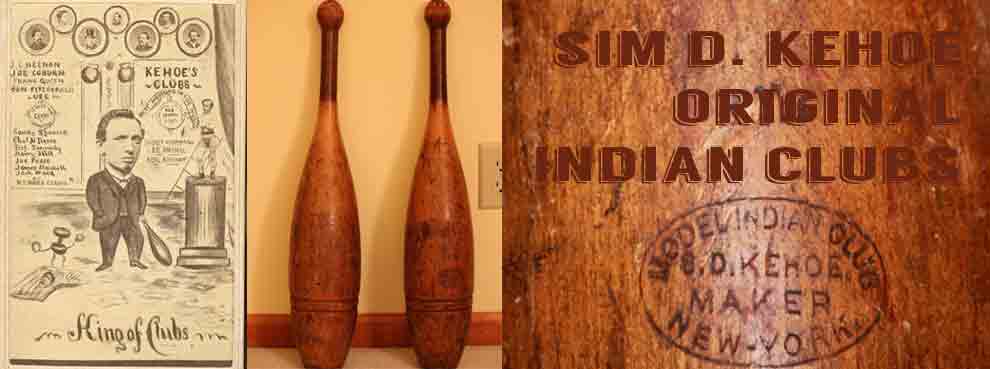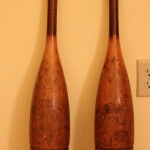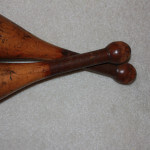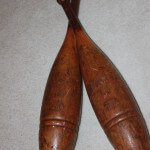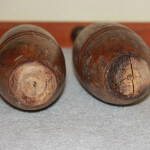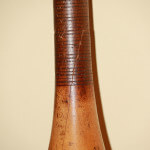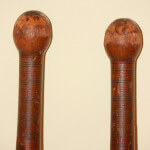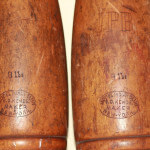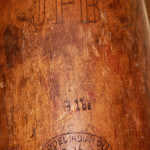Vintage Sim D Kehoe Indian Clubs
There is an opportunity to purchase a wonderful pair of 19th century Indian Clubs with a rare turned handle variation, made by Sim. D. Kehoe. Each of the clubs is signed with one of the two engraved with the initials JPB.
Both clubs are stamped with the oval Kehoe logo, which reads “MODEL INDIAN CLUB S. D. KEHOE MAKER NEW YORK”, and their weight, which was originally 8 lbs. each, although they now weigh 5lbs each. This weight discrepancy is due to the natural loss of moisture from the wood over many years, a testament to their age. They stand (about) 26.5″ tall.
Original Kehoe clubs are some of the most desirable. Additionally, this particular pair has a rare form, displaying integral turned sculptural handles. These clubs display expected dings, marks from use and age. There is a crack in the monogrammed club near the handle (see photo in regards to this).
Follow link to EBAY and contact the seller direct.
Indian Clubs were introduced to the US by Sim D. Kehoe, an American businessman and fitness enthusiast, who saw them in England and began to produce and sell them in America in 1862. Club swinging quickly became the first of many fitness ‘crazes’ to sweep the US.
Kehoe’s Indian Clubs caught on, and by the end of the 19th C there were other manufacturers as well as individual makers, but Kehoe was the first. Club swinging became widely recommended, not only by physical fitness enthusiasts, but by spiritual leaders as well.
Physical vigor and spiritual health were linked in a way that we are only beginning to rediscover today. Some fitness enthusiasts prefer to exercise with antique clubs, feeling they are valuable not only for exercise, but that their long history imparts an energy by which they bestow spiritual benefits that new clubs do not.
Kehoe also wrote books about the virtues of physical fitness and club swinging. In one of these, he prints a letter he received from Ulysses S. Grant dated 1866, that thanks him for “a full set of rosewood Dumb-Bells and Indian Clubs, of your manufacture.
Indian Clubs are increasingly sought after by collectors, and considered by many to be Folk Art objects, their sculptural form and simplicity, along with a richly patinated surface is certainly beautiful.
